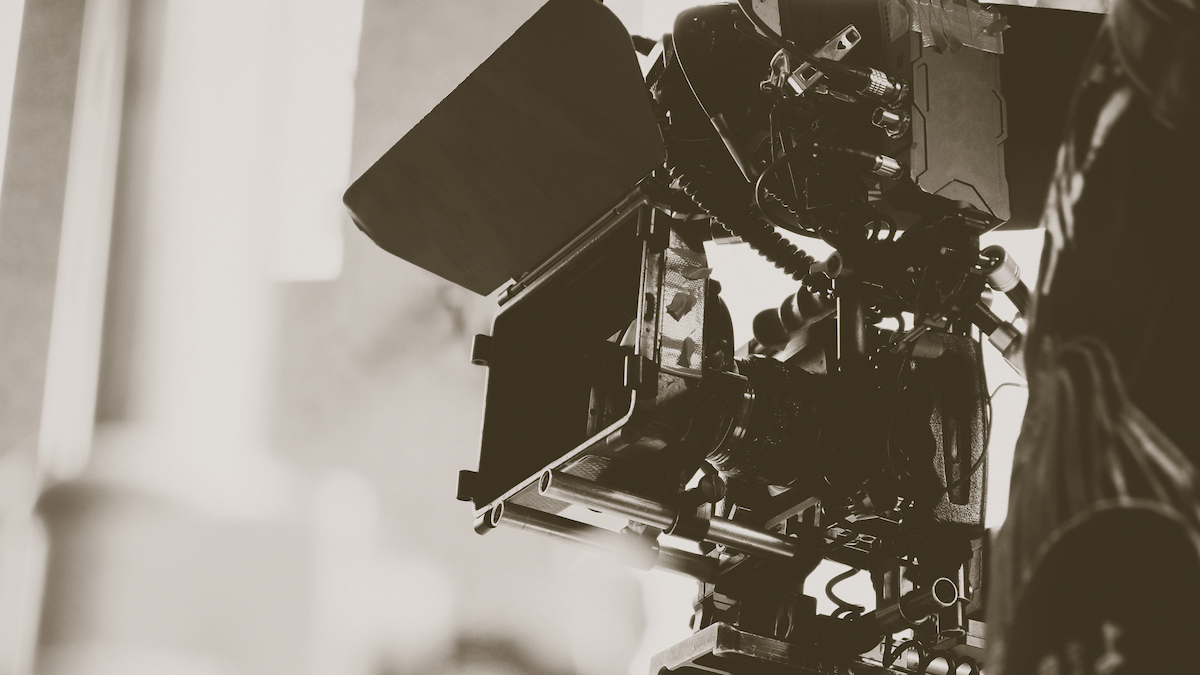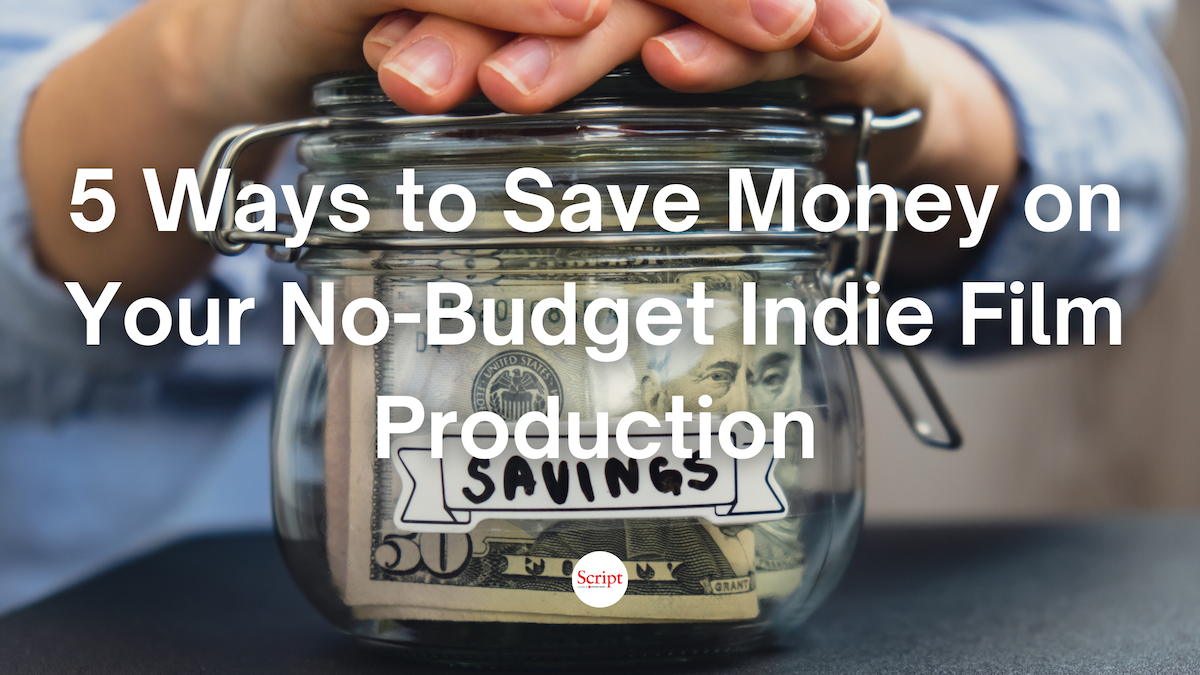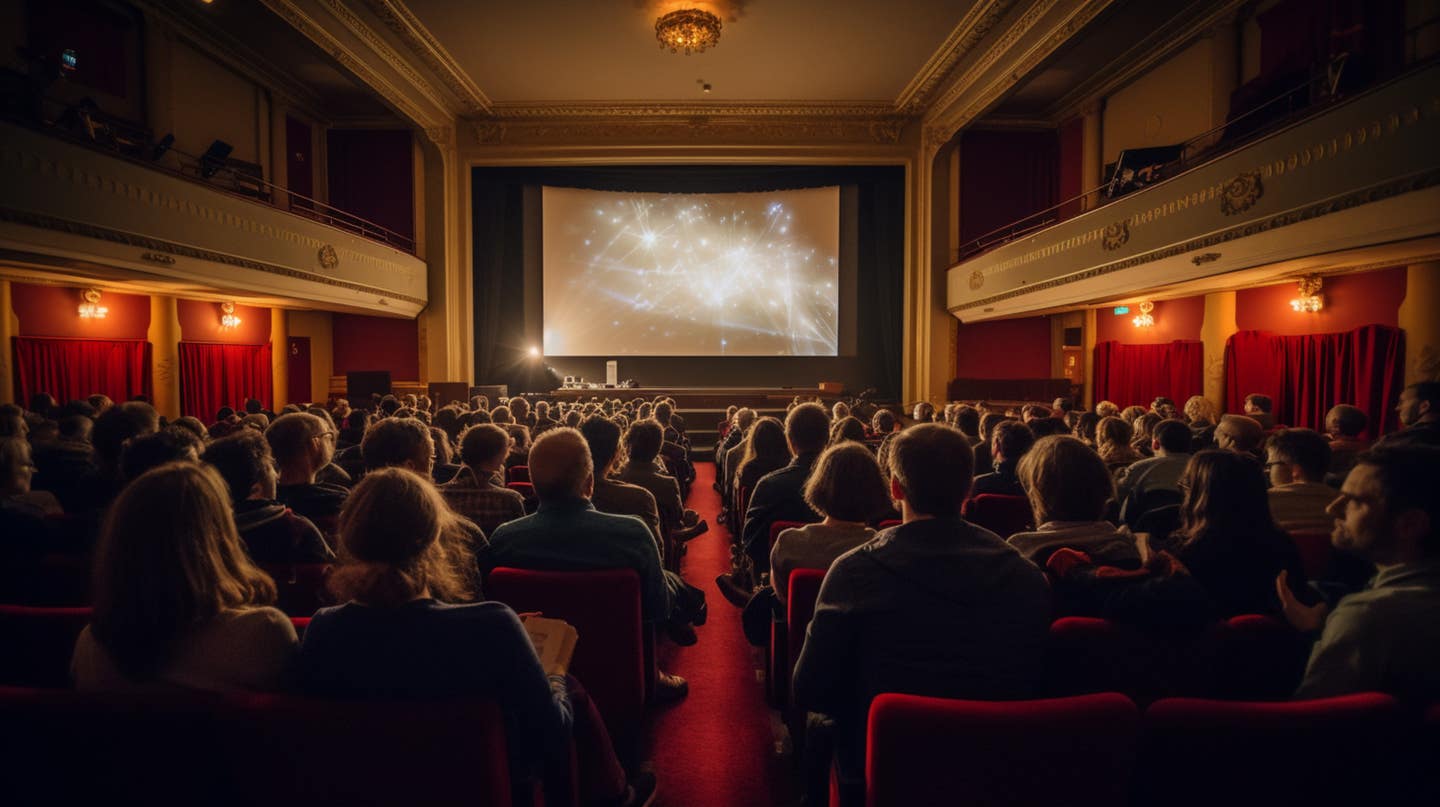TRUE INDIE: Interview with Filmmakers Katie Weinstein and Michael Feder of Raw Daisies on Connecting Directly with Audiences in an Age of AI
Raw Daisies connect directly with their audiences, sidestepping the traditional middlemen, while forming a close-knit film community in an age of distance and division.
It’s not every day that I get a chance to meet filmmakers as innovative, forward-thinking, and quite frankly, as cool as Katie Weinstein and Michael Feder of production company Raw Daisies. Instead of waiting for work to come their way, or sitting around hoping to hear back from festivals and distributors, Katie and Feder—as Michael likes to go by—are taking their careers by the horns in bold and novel ways.
For instance, instead of attending yet another film screening, wouldn’t it be more fun to bring some friends down to a huge game of musical chairs with music and prizes, and then watch a short film? Or if you’re into live music, maybe you’d enjoy watching a film, and then seeing the band that scored it play a live concert right afterwards? If you’re single, you might want to attend Raw Daisies’ speed dating event, where you can catch their newest film and also possibly meet your soulmate in the same evening.
These are just a few of Raw Daisies’ grassroots marketing events—inspired by the hardcore music movement of the 80s—that allow them to connect directly with their audiences, sidestepping the traditional middlemen, while forming a close-knit film community in an age of distance and division.
Katie and Feder have the sweetest of origin stories; they met in an 8th grade performing arts class, and remained friends throughout their college years. Although they attended different universities in separate states, they stayed in touch by emailing scripts back-and-forth. When the pandemic hit, they decided it was a great time to start working together, take control back in their careers, and reconnect during a time of isolation.
As, over time, they found success as filmmakers and had bigger jobs come their way, they decided to form a LLC and make their company official—with official homemade Raw Daisies merch to boot. Additionally, as Feder says, he chose to “seize the means” of production by purchasing the film equipment the company uses himself. This allows Raw Daisies to cut down on wasteful spending and turn a profit more easily, keeping budgets under control and allowing audiences to pay what they can at events, making their art accessible to everyone.
I was excited to chat with Katie and Feder about Raw Daisies’ innovative grassroots production and marketing model, and to find out what’s next for this dynamic filmmaking duo.
Rebecca: You formed Raw Daisies during the pandemic, at a time when almost all production had stopped, and people were maintaining distance from each other. What led to the decision to come together to form a production company at that time? How did forming the company help you get through those tough years?
Katie: It was less a decision to form a film production company as it was a decision to produce films with each other in a crazy, crazy time. For us, the important thing was (and is) making the art that we liked, not owning a company. By the time we decided to formalize ourselves as a production company, we had already been working together and producing work for some time. We only learned later that this is not the normal order of doing things, but normal isn’t really our bag.
Feder: We’re not being hyperbolic when we say that making movies saved our lives during the pandemic. It wasn’t about being savvy or scrappy. It was an act of self-preservation. It was a way for us to feel like human beings instead of disease vectors.
Katie: And to be honest, the pandemic was a very artistically positive experience for us, because it turned the noise down on all the pressures that every indie filmmaker is subject to, pressures to make certain films to get into certain festivals to impress certain important people. Just a few months before, that strategy was gospel. The pandemic, briefly, made it obsolete. It reminded us that we were doing this for the simple reason that we loved it, not as part of some strategy to get ahead. At the time, it wasn’t clear if there was going to be an “ahead” left when the dust settled.
Rebecca: Raw Daisies has an innovative model for producing films, and then connecting directly with audiences via live events. How did you develop your model for production and distribution?
Katie: If we had been born ten years earlier, we would not have this model. It is a reaction to the world that we have had to grow up in, and by that we’re talking about something way bigger than filmmaking. We grew up online, educated ourselves. We studied history, especially film history, and we picked up pretty quickly that the people in charge had not done their homework.
Feder: We were lied to and we knew it. Our model, in large part, is all about zigging where they zag. They tell us people don’t go to movie theaters anymore because they’d rather stay home. We said that people are excited to go out, just that they want to be able to afford it and have an experience they can’t have at home. They tell us that labor is simply asking for too much. We produced work on a profit-splitting model before we even heard of Sing Sing. They tell us that there’s no money in independent film. We point out that’s very cute coming from entities servicing debt loads large enough to eradicate poverty in this country overnight.
Katie: Our model is a constantly evolving experiment. There are areas where we may be dead wrong, and if that’s the case, we’ll learn and adjust. What will never change is our sense of right and wrong and our sincere belief that this is a world that can be won and will be won. Why not have good movies too? That’s all we’re saying.
Rebecca: You’ve spoken about “seizing the means” of production to bring down production costs and help eliminate waste. How did you go about amassing the film equipment you needed to be self-reliant as a company?
Feder: In short, we got jobs outside of the film industry, so we actually made some money, you know, to spend on things like cameras and microphones and to pay people to use them. We had plenty of friends who worked their first years in the workforce sorting mail and picking up coffee for studios and agencies, getting paid nothing (or next to it) on the promise that they’d get access to opportunities that never came. It can’t go on like this.
Katie: When we talk about “seizing the means” of film production, it’s important to define what we’re talking about. If you have bought a camera and a microphone, then you own a means of production. You have something that can produce a film. The reason we as a culture don’t like using that kind of language has nothing to do with the realities of filmmaking and everything to do with history.
Feder: Filmmaking simply presents the greatest opportunity for average people to compete. The person reading this probably can’t afford an automotive plant or a battery factory. However, and while it certainly isn’t cheap, the camera that they will shoot this year’s best picture on is available for purchase right now. That is a fact.
Katie: The question is, what do we do with that information?
Feder: Hollywood is built on a concentration of means, labor and market access. What we’re talking about is that first domino. It’s not in any way the whole enchilada, but it’s certainly something to chew on. Revolutions, especially in this industry, have been made of much, much less.
Rebecca: At a time when people fear that AI will soon take over the film industry, how are your community events contributing to the human experience of filmmaking?
Feder: Let’s put AI into its proper context. AI would not be nearly as much of a problem if we had real labor protections or real environmental protections in this country. AI would not be a problem for the film industry if that industry had not spent the last ten years lowering the bar to the point where, sure, why couldn’t ChatGPT write a better script? Have you read some of these scripts? If there is a post-AI cultural degradation, it started well before this present crisis. The machines have been in charge for over a decade at least.
Katie: Our events allow people to make a tangible, affordable contribution against a whole matrix of problems, of which AI is only one. We’ve put forward the radical idea that people are human, that they have a great capacity to love and to cherish. When we put on our events, we can actually see what’s on people’s minds, instead of relying on last year’s streaming data.
Feder: Whether that data is fed into AI or not, the films that come out of that machinery are less than we deserve and everybody knows it.
Katie: So, it’s really a whole culture that we’re working against. Normal people don’t understand why a film costs 10 million dollars, let alone 100 million. People are angry about that kind of waste, when so many live in want. That’s why they’re so excited to not only see a movie at an affordable price, but they’re able to see how every dollar goes into the next film and the next. At this point in history, that really matters to people.
Rebecca: What’s next for Raw Daisies? You just wrapped up a successful Summerfest series of live events in NYC. What new films and events can people expect from Raw Daisies in 2026?
Katie: You’ll see shorts written and directed by every member of the team: our creative producers Luke Sferra and Calyssa Lavery, as well as us. We’ll be producing some micro-budget shorts this Fall, just to develop our skills and have movies to screen next Summerfest. We’ll then be working on a more festival-oriented film in the Spring, before heading back into events.
Feder: We’re playing around with a lot of ideas for events, and haven’t settled on much, but we’ll definitely be doing more community screenings like our Mayhem series. It was awesome meeting filmmakers from around the world who are on the same wavelength as we are. Perhaps an even bigger game of musical chairs? We’ll see.
Learn more about Raw Daisies, watch their films, and find out about upcoming events at rawdaisies.com!
Rebecca Norris Resnick is a screenwriter, filmmaker, instructor for Writer’s Digest University, and columnist for Script Magazine. Distributed features include Cloudy With a Chance of Sunshine (Indie Rights and House Lights Media) and short films On Becoming a Man (Shorts International) and Toasted, which won the Canadian Film Centre’s ShortsNonStop competition. Rebecca’s films have screened in festivals worldwide including Cannes, Dances With Films, Hollyshorts, Manhattan Film Festival, Breckenridge Film Festival, and the Julien Dubuque Film Festival, and have won and been nominated for numerous awards. Rebecca is also an alumna of the ABC/Disney Television Discovers program, where her script Misfortune Cookies was performed in both New York and Los Angeles. When not working on her newest project, Rebecca stays on her toes chasing both her adorable daughter and her tuxedo cat, Sox.
Learn more about Rebecca at rebeccanorrisresnick.com.







